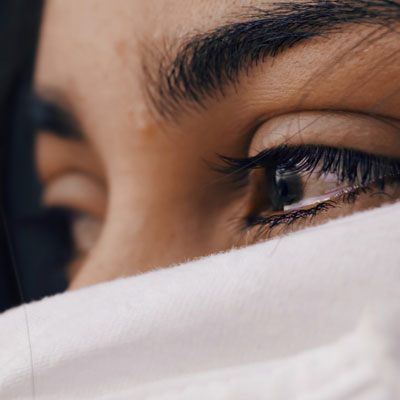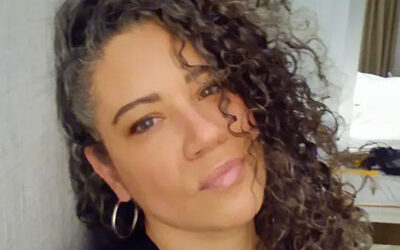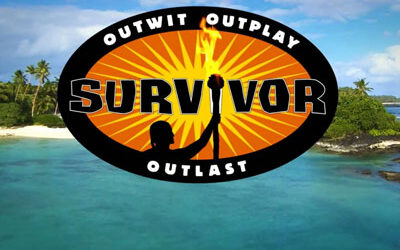
When I tell you this story about her I want to be really clear, this is not about her. I was raised by a hungry woman who has never — to this day — been in approval of her hunger.
The kind of emotional hunger she lived with and loved from was not of her making. I do not fault her. Any longer.
Because it stops with me.
this pouring from an empty cup and calling it love,
this learned-repulsion to (and consequent obsession with) our own unmet need.
This denying of the ever-gnawing ache to be fully met in love — and living the consequences of the requisite self-numbing — this is where we have to look, where we have to be able to go in order to heal what Kelly McDaniel so aptly calls Mother Hunger.
I lived with this hunger for over 50 years before I had a name for it. My mother, a woman I love dearly, has lived with it for 80.
I cannot countenance that for another women, that is why I do this work.
It is this corrosive, learned self-denial that, when we begin to heal, becomes a revolution in our lives and the lives of those we love. In the lives of those whose hearts we treasure.
Self-attunement, self-nourishment, and self-love feed a woman.
This is our work — to re-learn our own love-ly-ness, to relearn the love-ly-ness of our hunger for love.
Because a Full Woman feeds the world. She feeds Her world. We are the rising tide that lifts all boats. (Micro-lenders around the globe back women for exactly this reason.)
But before I knew about my own hunger,
before I could feel the abyss of my own emptiness,
I felt the pain of being the daughter of a devastatingly under-fed woman. A woman whose own Mother Hunger was unconsciously laced into her love.
*********
Christmas break, 1990. I am 19. I am sitting at the kitchen table with my mother, my uncles, my older cousins (both men I semi-idolized), and my first boyfriend.
We’re playing Hearts (oh, the irony) as was our family tradition after long holiday meals.
The conversation is light and banter-y with serious topics periodically dropped as casually as a discarded spade.
Someone brings up the new organ-donor indication on the state driver’s license; they ask the table, ‘Would you want to end up a cadaver in a medical school?’ (We are a family of doctors and nurses, cadavers as a topic for discussion is fair game).
At some point in our meandering chatter I pipe-in innocently, ‘I would donate my body to science.’
And without missing a beat, my mother hisses ‘Who would want it.’
As her statement — not a question — hung over the now-silent table, the man who was my first love sitting across from me, I felt eviscerated. Ridiculous.
Who would want it.
Who would want YOU. That is what I heard. And I do believe that is what she meant. Though I am certain it was not conscious. It was as unconscious as her own mother’s constant barbed comments about my mother’s weight.
*********
When we are under-fed, when we are chronically unmet in love early-on, particularly by our mothers, we will be inflamed when we see any women fed in the ways we cannot, will not, or do not know how to permit ourselves. This includes our daughters.
When we had to work for the connection with our caregiver, when we could not simply rest in their love meeting us where we (rightfully) needed to be met, we learn to self-contort in and for love.
We learn that our true need — like our body — is gross, ugly, repulsive. Who would want it. Who would want you.
Except that our need does not go away. Our need to be wanted, met, held, attuned-to with a loving, responsive, attentiveness cannot be discarded, shuffled in the deck, hidden.
We learn to repress our need, our want, to hide it in plain sight — from ourselves and others.
But that which is repressed always comes out sideways and with tremendous emotional velocity.
Like a beachball submerged, our hunger for love becomes an emotional cannonball that we will use to wreck ourselves or wreck another (and ourselves in the process; what we do to another we do to ourselves.)
We can neither give nor receive where we were chronically under-fed.
For the famished feminine, for the under-mothered woman, loving another is as fraught as feeling loved. Receiving love.
The process of healing the places we are or have been chronically emotionally under-fed is a little-by-slowly process of re-feeding.
Of learning to feel — and approve of — the hunger to which we had to become inured in order to survive.
The process of healing a woman’s emotional hunger, her ache to be met in the places and the ways that are Just Right, this requires we initiate a relationship with that which has felt numb within us.
This is a sometimes-quiet and slow walk with the parts of us that are weary and despairing.
And it is a sometimes-intense dance with a hunger that, once we are present with it, can feel insatiable, fathomless, never-ending.
We learn to turn our attention from an inner-scarcity that makes everything in our relational landscape either a threat, an achievement, or a conquest
to holding our hunger — our need — with tender attunement. With reverence.
Our need is Holy. Our need for love is a gift. It is our birthright.
And it is in claiming this gift — the rightful need to be held and met in connection for no other reason than we Are — it is in reclaiming this that we also reclaim the goodness of the love we have to give.
This is, I believe, how a full woman feeds the world. No longer pouring from emptiness and it’s attendant parsimony, She is Full and overflowing with the love she has learned to lavishly feed herself.
Get fed, woman. Get fed.
*********
Note: If this speaks to you, you may want to message Kristy to join her next women’s group. The group will read and explore the concepts of the book Mother Hunger: How Adult Daughters Can Understand and Heal from Lost Nurturance, Protection, and Guidance* in-depth and work with how this shows up in your life and relationships. The 6-week group begins early March.
*Mother Hunger by Kelly McDaniel © Kelly McDaniel, Mother Hunger and kellymcdanieltherapy.com, All rights reserved.









0 Comments